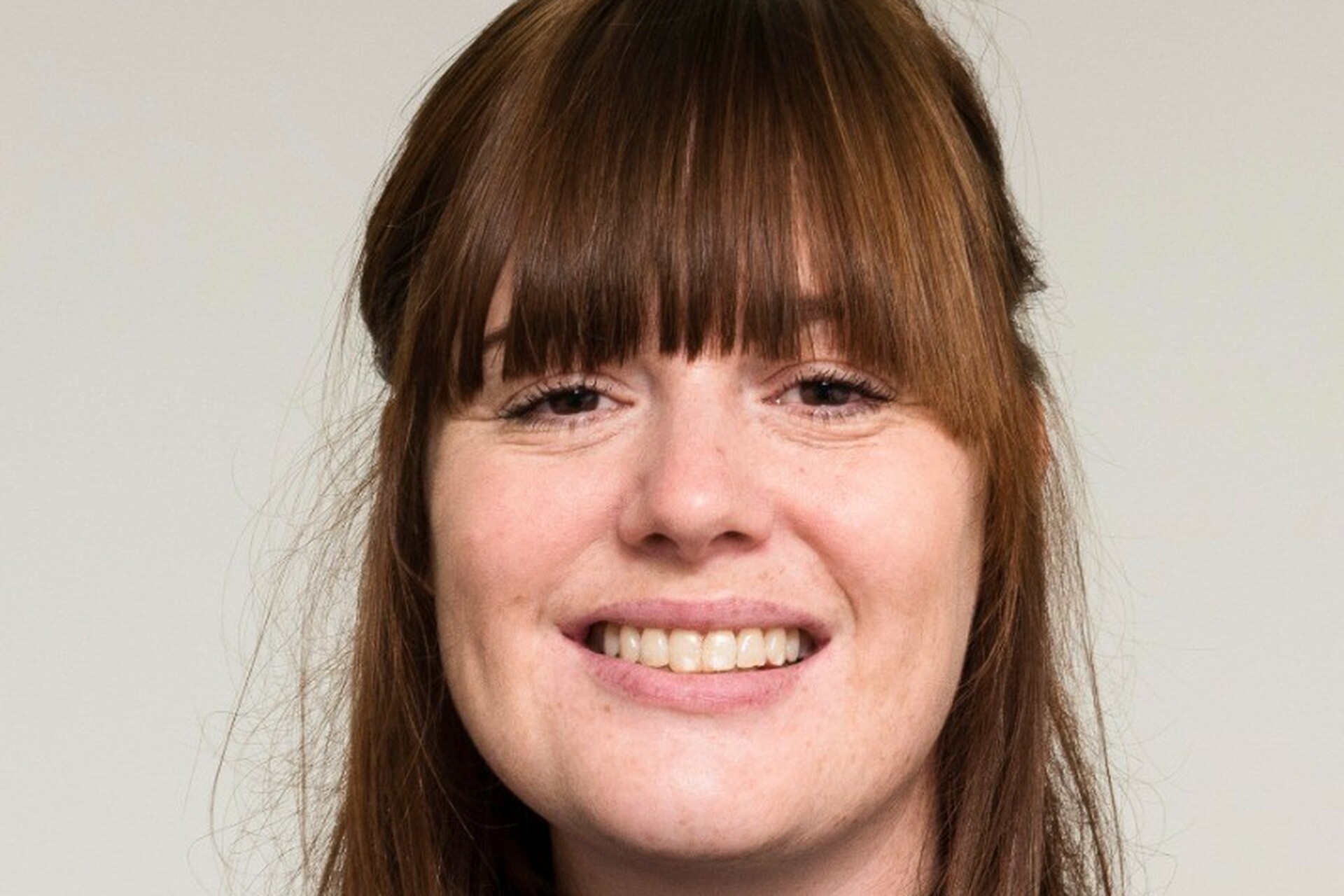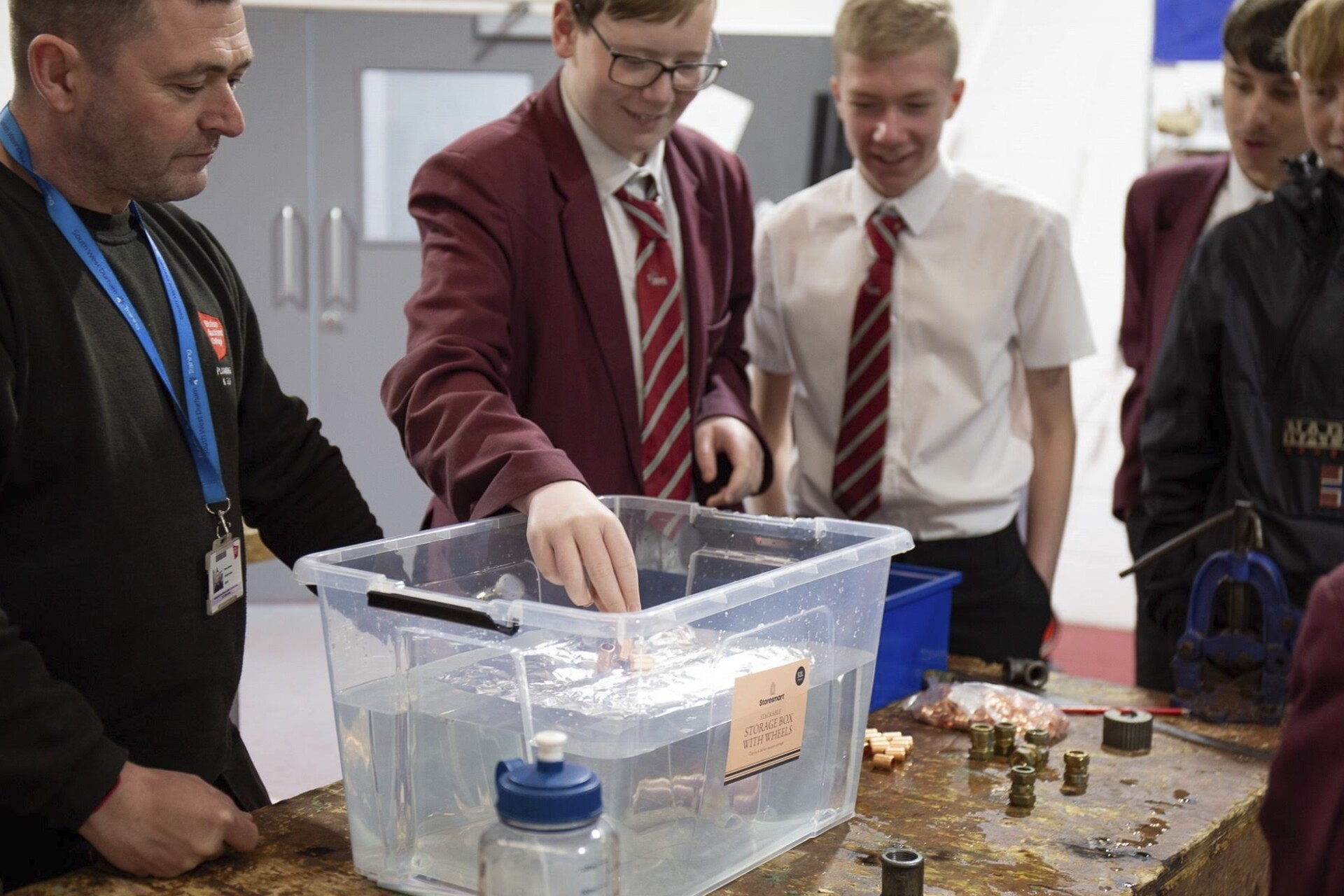Industry Trends and Challenges: BGB Engineering - Reframing Recycling in Manufacturing

By Marie Carter-Robb
Grantham-based engineering firm BGB has long championed sustainability and circular economy principles. As the UK's new Separation of Waste (England) Regulations come into force in 2025, the company is already ahead of the curve - embedding waste separation and sustainable design into its manufacturing processes, training and strategy.
Alex Batty, QHSE Manager at BGB, explains why the manufacturing sector must lead the green industrial revolution.
Industry Trends and Challenges
What do you see as the most significant trends currently shaping the manufacturing and engineering industries?
The drive towards net zero and a circular economy is the most significant trend we’re seeing in our industry. Sustainability is no longer a bolt-on - it’s a fundamental part of how we design, produce and operate.
With the new Separation of Waste Regulations, waste is no longer something that happens off-site, out of sight. Manufacturers are now responsible for separating glass, metal, plastic, paper/card and food waste at source. This requires a full operational rethink, particularly in high-paced, high-volume environments like ours.
We’re also seeing a broader shift: reframing waste as a strategic input rather than a by-product. Waste reveals where we’re inefficient - in sourcing, design or process control. When treated as a data point, it becomes a tool for continuous improvement.
What are the biggest challenges your company is facing right now, and how are you addressing them?
The biggest challenge is the complexity of implementing waste separation in real-world manufacturing environments. Production lines are dynamic, materials are diverse and systems don’t always align neatly with the waste categories defined in the new legislation.
Cross-contamination is a major risk. A single misplaced item can compromise an entire waste stream. To address this, we’re embedding waste thinking into workflows - not just adding bins, but redesigning processes, retraining staff and securing buy-in at all levels.
At BGB, we’ve used the incoming legislation to pilot new tracking systems, reinforce zone-based collection points, and deliver hands-on training for staff and apprentices. We also run interactive initiatives - quizzes, competitions and team challenges - to make sustainability part of the everyday conversation.
Innovation and Technology
How is your company leveraging new technologies to stay competitive?
We’re exploring technologies that support circularity and smarter production. Our internal waste tracking systems allow us to analyse where waste is created and how we can reduce or eliminate it.
This isn’t just about compliance. It’s about optimising our processes, cutting costs, and creating a more resilient, forward-thinking business. By embedding sustainability into design and operations, we’re strengthening our position in a market that increasingly values environmental responsibility.
Can you share an example of a recent innovation at your company and its impact on your operations?
One of our key initiatives has been the expansion of our circular economy programme. We’ve gone beyond traditional recycling to re-evaluate materials at the design stage, build feedback loops into production and ensure waste is reduced before it’s even created.
We’ve also introduced new zone collection systems on the shop floor and trained our teams to use them effectively. This has already led to measurable reductions in cross-contamination and improved sorting rates - all of which support cost savings and regulatory compliance.
Sustainability and Environmental Impact
How do you see sustainability influencing the future of manufacturing and engineering?
Sustainability is now a strategic imperative. It influences everything - from customer expectations and regulatory frameworks to recruitment and brand value.
The UK’s waste and recycling market is worth over £24 billion and is forecast to grow by 5% annually to 2030. Manufacturers that embrace circular thinking early will be best placed to benefit.
At BGB, we’re not just responding to new regulations - we’re leading the shift. That means rethinking materials, closing loops, and helping equip the next generation of engineers with the skills to design for a low-waste future.
What policy or industry support would help you accelerate your sustainability goals?
The current legislative framework doesn’t adequately reflect the realities of industrial operations. SMEs in particular need clearer guidance, industry-specific examples, and funding support to make the necessary infrastructure changes.
While we wait for that support, we’re working with other manufacturers to share best practice, standardise approaches and accelerate collective progress. Industry collaboration is key.
Workforce Development and Skills
What skills do you believe are most critical for the future workforce in manufacturing and engineering?
Engineers of the future will need a strong grounding in sustainability principles. Beyond technical skills, we need critical thinking, problem-solving, and an understanding of systems thinking.
Our training focuses not just on compliance, but on creating a mindset shift - encouraging employees to see sustainability as part of their role, not an external requirement. We include apprentices in this process from day one.
How is your company investing in workforce development and training?
We deliver structured training on circular economy principles, waste separation and environmental responsibility. But we also use more informal methods to embed sustainability in our culture - through games, conversations and visible changes on the factory floor.
It’s about creating a workplace where people understand why sustainability matters - and feel empowered to play their part.
Leadership and Business Strategy
How do you maintain a culture of innovation and continuous improvement within your organisation?
We’ve always believed in questioning the status quo. The new regulations gave us an opportunity to innovate across our operations - from logistics and design to data and behaviour change.
Sustainability isn’t a project at BGB, it’s a mindset. It informs everything we do, and we make sure that message is shared from leadership to the shop floor.
What is your vision for the future of your company, and how do you plan to achieve it?
Our vision is to be a leader in circular manufacturing - not just in terms of compliance, but in reimagining what engineering can be.
We believe that manufacturers must lead the green industrial revolution. That means treating waste as a resource, embedding sustainability into every phase of the product lifecycle, and helping build a more circular, resilient economy.
This isn’t about being forced to comply - it’s about choosing to lead.




